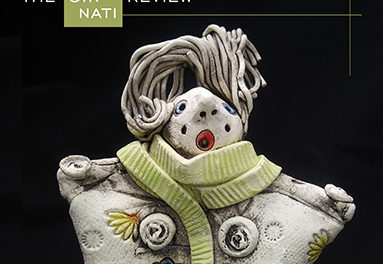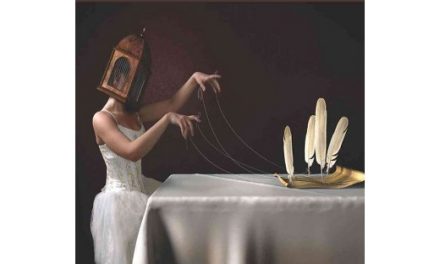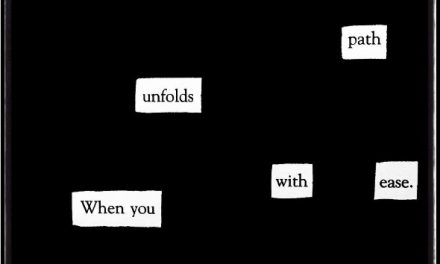Recent volunteer and PhD-poet extraordinaire Julia Koets joins us by way of San Francisco and Summerville, South Carolina. When asked about how the Midwest stacks up against northern California and the Deep South, Julia graciously restrains her contempt for goetta, her bemusement about the Ohio General Assembly, and her utter indifference toward the Bearcats this season. “Queen City  rocks,” she says. Julia, who’s been writing villanelles exclusively for the past year, often breaks from reading submissions to gaze out the office windows at the buckeyes flaming orange on Clifton Ave, laughing through her nose about something she sees. “Did you know the word squirrels,” she says, “comes from the Greek skiouros which means ‘shadow tail’?” “No,” we admit, “we didn’t!” “It’s true,” she says, returning to her stack of submissions. Five minutes later, Julia starts laughing again. “Marmots are squirrels, too,” she says: “Marmot. Now that’s a good end-word for a villanelle!”
rocks,” she says. Julia, who’s been writing villanelles exclusively for the past year, often breaks from reading submissions to gaze out the office windows at the buckeyes flaming orange on Clifton Ave, laughing through her nose about something she sees. “Did you know the word squirrels,” she says, “comes from the Greek skiouros which means ‘shadow tail’?” “No,” we admit, “we didn’t!” “It’s true,” she says, returning to her stack of submissions. Five minutes later, Julia starts laughing again. “Marmots are squirrels, too,” she says: “Marmot. Now that’s a good end-word for a villanelle!”
We’re pleased this week to share Julia’s thoughts about surprise and sonic-integrity in Mark Belair’s poem “Listeners” from issue 10.1.
Julia Koets: I recently read a poem about sound by Yona Harvey in her first collection, Hemming the Water. In one line, the speaker equates sound with God. In Mark Belair’s poem “Listeners,” sound feels that encompassing, that important, that big. And it’s unexpected that the poem begins: “All the listeners / are out tonight at the sidewalk cafes.” I would have expected all the talkers to be out at night, and that’s what I love about this poem. It’s surprising at first, but once you read it, you realize it’s telling you something you knew all along. The poem pays attention to the silences, which are as important as the voices that are more often heard. It is lack of speech, not speaking, that gains force, that gains resonance, that says something important.










